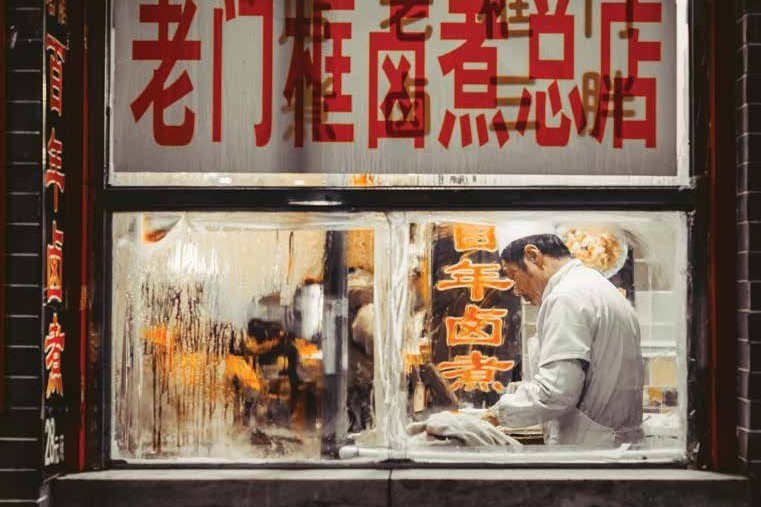Chinese market has changed
The market in China is changing rapidly with the effects of Covid and government policies. By Hunter McGregor.

The market in China is changing rapidly with the effects of Covid and government policies. By Hunter McGregor.
It is interesting when there is some commentary about how “the market fundamentals (for food) are strong in China”. I think what they mean is that China is a large market, people need to eat food, and we sell food!
Yes, China has many people and a lot of opportunities, but Chinese consumers have plenty of choices and don’t need to consume New Zealand products.
This comment doesn’t mean anything apart from sounding good. That’s fine, but if you look a little bit deeper into these “market fundamentals”, I believe the Chinese market has moved.
It is fast-moving and has been for years and will continue to be so. This is part of the attraction for people like myself to operate a business in China. It is fair to say the 2019 Chinese market is “fundamentally different” to what we see today. Covid has and continues to have a major impact on everything, but not everything is about Covid.
Travelling to China since early 2020 has been very difficult. As I write, you still need to do an eight-day quarantine, five days in a hotel. This is not a five-star hotel, and you do not get to choose, so it is very hit-or-miss on quality. Plus, three days at home, if you are allowed to do the home part, as this is up to your local area.
There have also been complex Covid testing and internal travel rules (i.e. if you travel into Shanghai from anywhere in China for the first five days, you can not go anywhere else than home or your office). Each city/province has its own Covid apps (only in Chinese that you need to download), and in some places, their apps do not accept passports as an ID in the app. So it’s very complex, and these rules are always changing.
Once you can move around, you need to scan into all locations. If a Covid-positive person has been there the same day, you will most likely be taken to central quarantine for a minimum of seven days (even though you continue to test negative). Central quarantine is a lot rougher than the “nice hotel” you had in quarantine coming into China. It could be like a shipping container or a large room with a couple of thousand beds.
Time on the ground
Not travelling to China for the past couple of years is not an issue for some.
I was told by a manager of a NZ agriculture company that they did not need people on the ground to understand China. This seems to be a unique superpower, but for the rest of us, travelling and spending time on the ground is usually the best way to understand any market.
Many of these rules were removed with a major government announcement on December 7. Zero Covid looks likely to be dropped, and China will most likely follow the rest of the world in dealing with Covid. It will be a very challenging and rocky winter with cases increasing, as happened in NZ when restrictions were dropped. The big difference with NZ is that China has lower vaccine rates, and we are heading into a long, cold winter.
One major fundamental market move in China that has sped up in the last couple of years, (especially in food and beverage), is that imported products are not always seen as superior to local products.
Just because some meat or bottle of wine is imported doesn’t mean it is automatically better than a locally produced product. This long-term trend has sped up during Covid. The Chinese government has been pushing this, as any government should do. Consumers are embracing this trend.
Over the past couple of years, for all imported meat and seafood, the internal regulatory environment has become much more complex and challenging to get products to restaurants and consumers around the country. This has had a major impact on my own meat distribution business and has completely changed the market. As locally produced meat or seafood does not operate under the same regulatory environment, this is a fundamental market change. It will be highly unlikely, but it would be good to see that all of the regulations are dropped when the Zero Covid policy is dropped.
The continuation of the Zero Covid policy has had a major impact on consumer and business confidence. Things have slowed and are more complex. Several long-term market fundamentals have significantly moved. This is one of the most likely reasons there has been a move to drop Zero Covid as the economy is not in a good position.
Moving out of China
Many multinational and medium size companies have already or are planning to move their production out of China. You will begin to hear much more about production in ‘China for China’, as opposed to production in China for the rest of the world.
Moving production out of China will be extremely complex, and many companies might be unable to do this in the short term. Apple is the latest large company to talk about moving production out of China. It will be interesting to see how long this takes, but it will happen. The loss of business confidence is linked to consumers’ confidence, and both have been heading downhill all year.
Lifting Zero Covid will not make too much difference in the short term. 11.11 (Or singles day) held on November 11 is the world’s largest online sales event, started by Alibaba in 2009. Each year the event has grown significantly, and Alibaba always boasted about overall sales volume and growth. This year they said sales were in line with last year (NZ$133.65 billion), but they did not disclose that actual number. This is a big signal of how things are going, especially since Covid generally moves more people into online shopping.
It will be a very challenging few months with case numbers increasing, and the health system stretched. It is difficult to see how consumer confidence will pick up in the short term. But confidence will return, and it will be a fundamentally different market. But there will still be plenty of challenges and opportunities for companies that are prepared to give things a go.
- Hunter McGregor is a Chinese-speaking Kiwi based in Shanghai selling NZ meat into China.




